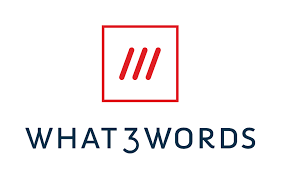5 June 2019
This interview explores where the idea came from, the challenges faced and some advice for future tech start-ups.
Jack Waley-Cohen is co-founder of what3words, the geocoding platform that allocates a three word address to every 3m x 3m square in the world. Prior to this, he led the operations of a translation company as it scaled from five employees working from home to 150+ employees across four continents.
We sat down with Jack to ask him about his journey with what3words:
what3words is going from strength to strength. How did it all start?
My co-founder, Chris Sheldrick, discovered the problem back when he used to work as a concert organiser. He struggled to get equipment and bands to event locations on time because the addresses of concert locations were often very confusing or obscure. He knew there were more specific ways of identifying locations, but these usually involved difficult to remember lengths of numbers.
Working with another friend who is a top mathematician, the concept of using words instead of numbers of identifying locations was born. We had come up with a simple but precise way to map the world.
What did you find was the biggest challenge throughout your journey with what3words?
Focus is really hard. The what3words solution is applicable to so many different industries, so there have been big challenges along the way working out exactly where we could add most value, and therefore where to focus our efforts with the constrained resources of a start-up. To an extent you have to follow opportunities to discover possible areas of focus, but it is very easy to get distracted and spread too thinly.
If you had to do it all again, is there anything you’d do differently?
We spent a lot of time in the early days working on a big, but non-core, feature. We eventually dropped that after a couple of years, but it was distracting for us and our users. I think if we did it all again we’d concentrate just on one core item – that is hard enough, let alone trying to manage two different products!
What’s one piece of advice you’d give to someone who is looking to start a tech company?
Do everything you can to become a sales and marketing company as soon as possible. By that I mean get the tech to a point where people can use it as soon as you possibly can, then focus as much energy as you can on shouting about it. Great tech is no good if nobody knows about it. Of course, you have to carry on developing the technology, making it easier to use, responding to feedback etc., but no business – however miraculous its technology – can exist without customers and users.
One challenge that a lot of start-ups face is hiring the best talent. Do you have any tips for this?
I think there are different approaches at different points in a start-ups lifecycle. Early on we hired very experienced people who were fully bought into our mission, and were willing to take lower salaries than they were able to get elsewhere, in conjunction with some share options. As time has gone on, and we’ve been better able to compete with market salaries, we’ve always looked for people who are totally bought into our mission and have an amazing attitude. Everything else can be learned. So my top tip would be to hire people who are excited by what your business does – you need a team of people who feel like they own the idea and can be as passionate as the founders.
How did you manage the fundraising process? Was it hard to find investors that fit with the company?
Fundraising is never easy, though we learned to be very clear, in the early days, what our investment proposition was: we were asking people to take a view on whether what3words could, literally, change the world, or not. And if they thought we could then we were an interesting investment for them. If they wanted to overanalyse the short-term prospects and not see the big picture then they were always going to struggle. Once you work out what the right message is for investors then it becomes a bit easier (though never easy).
We’ve managed the fundraising process ourselves, though we’ve tried to get word of mouth of going among our investors of all sizes to have people bring others they know along with them. That has helped a bit.
Did you find the culture at what3words changed as the company scaled up? Did you actively try and manage the change?
The company culture has evolved but it doesn’t feel vastly different now with 100 people in the company vs earlier when there were 5 or 15. We’ve tried to hire people who complement the culture, and also to let it evolve naturally, but we have always done things to nurture the culture and keep it on track. Most of that comes from leadership, and if you can get that right as much as you can then everything else clicks into place.
Another thing we did was hire our first HR person early – when we had fewer than 20 people. That gives both a message to the team that people management is important as well as creating additional capacity to nurture the culture.
On working with UHY Hacker Young:
We've always found the team to be responsive, helpful, and proactive in suggesting ways for us to improve our processes. In particular, we have been happy with the move from Sage to Xero, which has made our lives much easier as we scale the company.
Interviewed by:
Robert Collings
Tech & High Growth Manager, UHY Hacker Young

